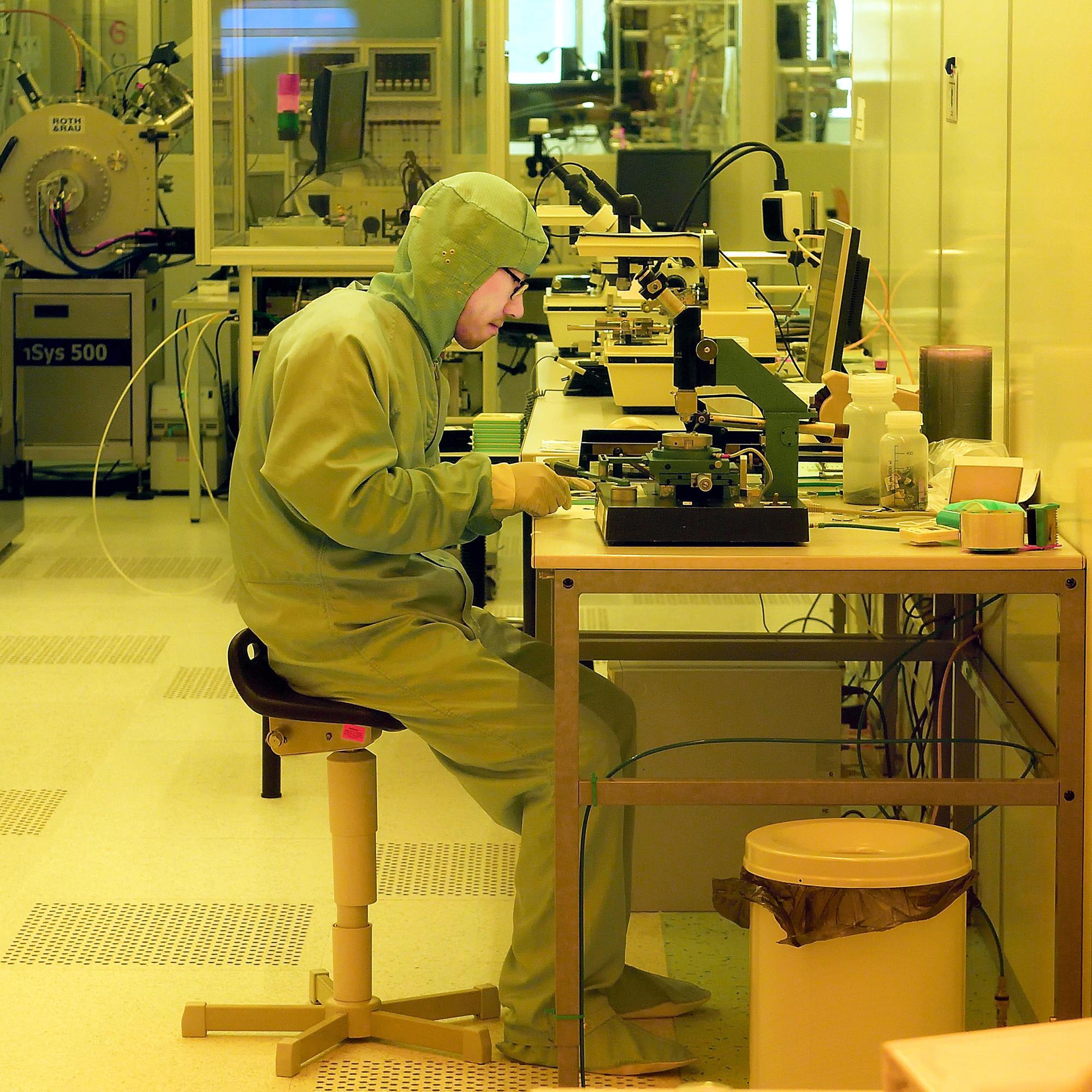Fehlende Investitionen, fragmentierte Entwicklungsaktivitäten und mangelndes Bewusstsein waren allesamt Hindernisse, die einem Durchbruch der Photonik im Wege standen. Diese Probleme wurden nun dank PhotonDelta gelöst. Lesen Sie hier wie.
Both fervent supporters and critics are convinced that photonics is a promising technology, a solution to existing problems and an enabler for all kinds of new applications. But a lack of investment, fragmented development activities and inadequate awareness among potential users have prevented a true breakthrough for quite some time. However, PhotonDelta is tackling these issues.
PhotonDelta was founded in 2016 as a project launched by Eindhoven University of Technology and is funded by the Provincial Authority of North Brabant and Brainport Development. It is an EU-wide organization with its roots in Brabant; the head office is still located on the campus of the Eindhoven University. PhotonDelta became a public-private partnership in July 2018 and is now focusing on becoming one of Europe's leading digital innovation hubs that "actively links research and development to best business practices". The activities of PhotonDelta are partly funded by a European Union grant (Operationeel Programma Zuid-Nederland/OPZuid). This programme stimulates innovation in three Dutch provinces by supporting collaborative initiatives between industry, research institutes and government agencies.
PhotonDelta is active in areas such as agriculture, healthcare, data communication and aviation where the use of photonics can make products much lighter, cheaper, faster, more sustainable and smaller. To achieve this, the organization has formed teams that prepare 'product roadmaps' in order to bring together expertise and the relevant technology with the aim of shortening the time to market. Photonics often interfaces with electronics. It is not a substitute.
During the relatively short period of its existence, PhotonDelta has established itself as an authority and one of Europe's leading innovation hubs. It has mainly achieved this by seeking involvement with existing initiatives, extending them and linking them to new initiatives. All these activities are based on the realisation that a fragmented approach in Europe can never lead to scaling up, let alone establishing a good competitive position in relation to Asia and America. "Disruptive innovation comes about when young companies in this sector gain access to the expertise that has already been acquired by high-tech companies and applied research institutions", says director Ewit Roos.
Much of PhotonDelta's work focuses on convincing governments and market parties to invest in this new technology. During the past ten years, public funding available for supporting research and innovation in the SME sector has already increased tenfold to around 100 million euros a year. “But we all know that things would move along much faster if that amount were ten to twenty times higher. That is already the case in the US and parts of Asia. So PhotonDelta has taken on a pioneering role in changing that situation for the better in Europe.”

There can be no argument about the importance of photonics - both technologically and socially - in the opinion of Ewit Roos. “If further development of the current generation of chips stagnates, photons will replace electrons as the new driving force behind future technological breakthroughs.” However, he also points out that many photonics companies have currently reached the limit of their production capacity for photonic integrated circuits, also known as PICs. “Both the production output and the reliability of these chips need to be increased. And standards are required to regulate the way in which they are packaged; i.e. the connection between photonic chips and the outside world. PhotonDelta aims to address these challenges and become a global leader in integrated photonic systems.”
It is estimated that innovative SMEs make up 80% of the photonics sector in the EU. PhotonDelta helps them to scale up their capacity. Ewit: “We are working hard to link and coordinate initiatives to help them achieve this faster. Our efforts focus on mobilising new funding and research resources that have not yet been exploited.” The extra capital injection of a quarter of a billion euros announced by State Secretary Mona Keijzer (Economic Affairs) in the summer of 2018 demonstrates that this policy is starting to bear fruit.
It is no coincidence that PhotonDelta has its headquarters in Eindhoven. Several world-class photonics companies and research centres are already present here and the same is true of the area around Nijmegen and Twente. “We have achieved a leading position in optics, photonic integration and nano technologies. However we must encourage as much collaboration as possible in order to maintain that impetus and continue to have a significant impact on the global stage. In other words, we must put an end to the fragmentation that seems imminent at the present time.”

Ewit believes that the next step forward will involve companies that currently do not sufficiently understand the usefulness of photonics. “The time is ripe for approaching the non-photonic companies that, in our view, can benefit from some form of integrated photonics or that have already approached us for assistance in scaling up their business. The goal is to combine the entrepreneurial spirit of young companies with the expertise held by large corporations.”
The provincial governments in North Brabant, Overijssel and Gelderland have already made a strong commitment to the European photonics industry, says Ewit. “Europe's fourth industrial revolution will start in the regions where researchers and entrepreneurs collaborate productively in order to innovate. Photonics is a smart and clean industry. There is a strong sense of urgency that we need to move on to the next phase. We have a head-start, but we must not forget that other countries are not far behind - and that competitors in other parts of the world are supported by billion-dollar investments.”

If there is any area where the advantages of photonics over traditional electronics are glaringly obvious, it is in industries where weight, space, speed or energy consumption play an important role. All these aspects come together in the aircraft industry. It is not surprising that parties from this industry show an interest in our companies’ technology. We can equip an aircraft with sensors that measure different functionalities. Normally, each sensor requires three copper wires, however this arrangement would result in unacceptable weight and take up too much space. Photonic chips - with the addition of a few fibre-optic cables - can resolve this problem at the cost of a few hundred grams of extra weight.
You can copy the full text of this story for free at the touch of a button